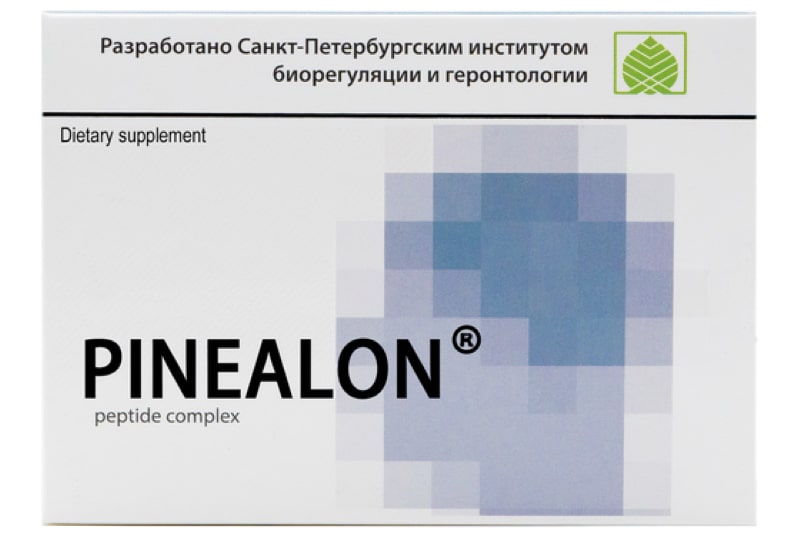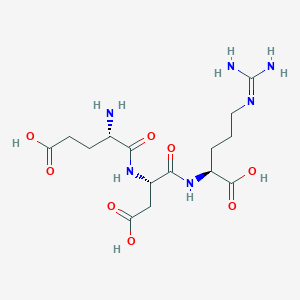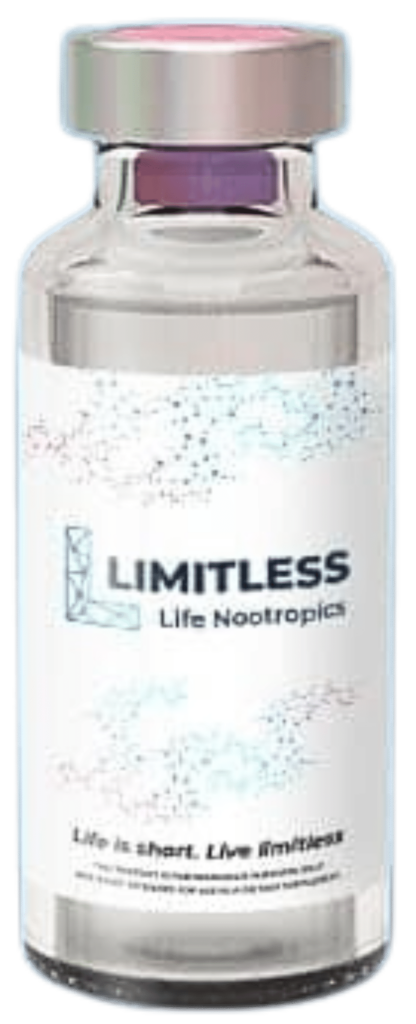Last week, I covered the Ventfort peptide bioregulator and how it was essential for blood flow in the human body.
But as bioregulator expert Phil Micans and bioregulator pioneer Dr. Vladmir Khavinson have said before, Ventfort was one of the 3 ESSENTIAL bioregulators to use.
The second one is known as Pinealon, and it too happens to treat multiple disease states while playing nice with other bioregulators and traditional peptides.
It may not act on every single organ system in the body, but it does act on just one tiny tissue that affects multiple biological systems.
This in turn will greatly determine what you think and how you feel every day, so pay close attention!
I’m going to do a deep dive on Pinealon and show you why it should be added to your collection of peptide bioregulators ASAP!
If you’re not familiar with Bioregulators, get ready to be blown away, as they are the older, but new secret weapon to age reversal.
Table of Contents
ToggleWhat Is Pinealon?
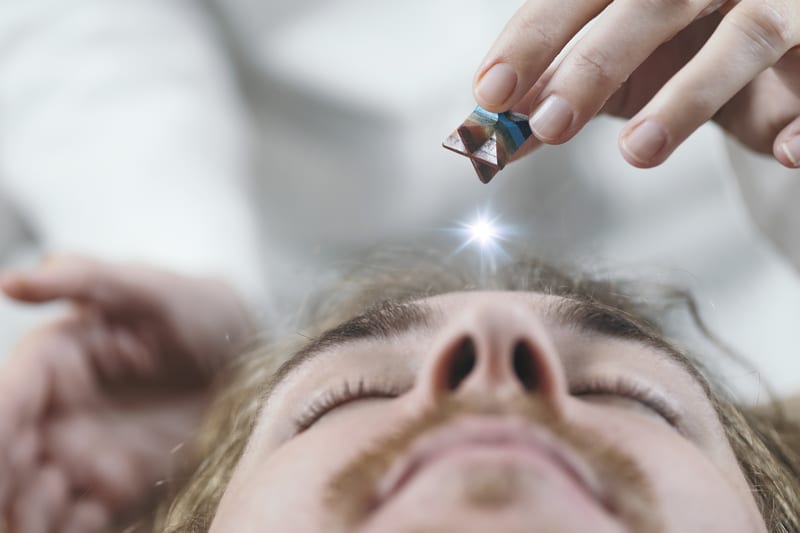
Pinealon is a synthetic peptide bioregulator consisting of only 3 amino acids: Glutamine (Glu, E), Asparagine (Asp, D), and Arginine (Arg, R).
(Source)
Thus, if you still remember my first article on peptide bioregulators, this puts Pinealon in the class of Cytogens.
Every bioregulator is specific to the tissue/organ it targets, and in the case of Pinealon it goes directly after the brain.
Thanks to its ability to cross the blood-brain barrier, Pinealon can help normalize select cognitive functions.
Some of the reported uses, which bioregulator expert Phil Micans informed me of and will be discussed later, include:
- Improvement of physical strength
- Treatment of brain injuries and disorders
- Regulation of sleep cycles
- Neuroprotection against aging-related problems
- Maintenance of memory
Pinealon vs. Endoluten: What’s The Difference?
According to the official IAS website, Endoluten is “a complex of low-molecular peptides with molecular weight up to 5000 Da, isolated from glandulapinealis (epiphysis/ pineal) of young animals – calves aged up to 12 months.… manufactured in the form of tablets or capsules with a content of active substances of 10 mg”
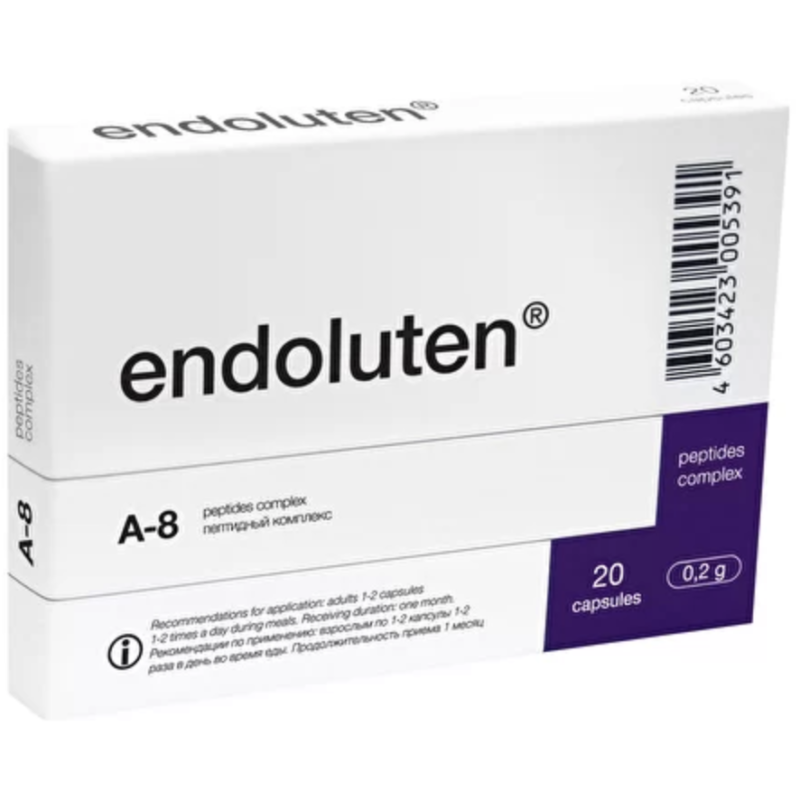
This makes it a Cytomax, a separate class of peptide bioregulator.
However, Pinealon is NOT the synthetic version of Endoluten in the way that Vesugen is the synthetic version of Ventfort… Pinealon itself is a Cytogen isolated from Cortexin.
Don’t forget about the crucial differences between Cytogens (synthetically derived) and Cytomaxes (naturally derived):
- The typical dose of a Cytomax is 10 mg of active substance per capsule, while the typical dose for a Cytogen is 100-125 mcg per capsule
- Cytomaxes contain a group of peptide molecules, while Cytogens contain a single peptide molecule
- Cytomaxes work for longer but don’t work as fast, while Cytogens don’t work for too long but work much faster (hence you treat a medical condition with one round of a Cytogen and then continuously follow up with 10-day treatment rounds of Cytomaxes every 3 months or as needed)
To make the distinction between a Cytoimax and Cytogen when making your purchase, remember the inactive excipients will be the same (microcrystalline cellulose, lactose, etc.)
For instance, the active substance in Pinealon is “Peptide complex AC-5” whereas the active substance in Endoluten is “Peptide complex A-8”.
Look for this difference and there won’t be any confusion.
(In fact, for any peptide bioregulator, “AC” is for synthetic bioregulators and “A” is for natural bioregulators)
How Does Pinealon Work?
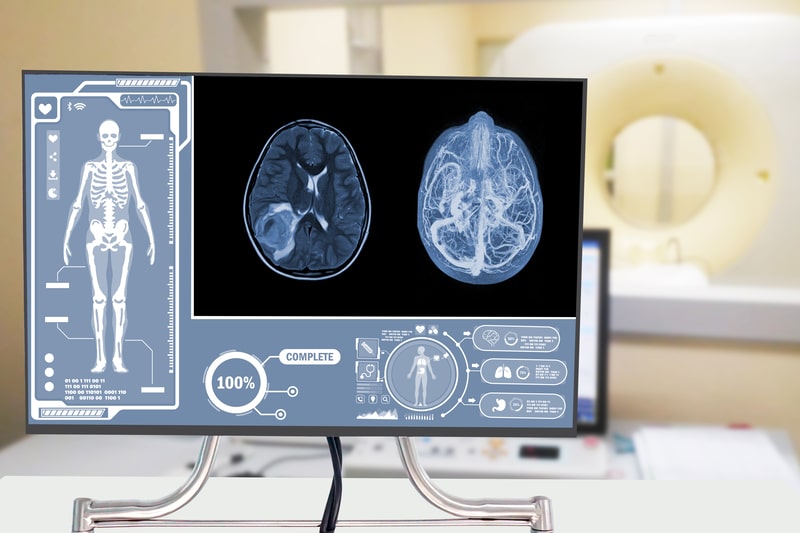
While there are many potential mechanisms of action for Pinealon, there are two that stand out to me the most.
One possible mechanism involves the lowering of caspase-3 activity in the brain:
“We studied the effects of the tripeptide pinealon (Lys-Glu-Arg) on behavior and caspase-3 activity in the brain of 21-day-old rats that were subjected to prenatal hypoxia (i.e. low levels of blood oxygen).
We found that administration of pinealon to females during the entire course of pregnancy increased the survival of newborn rat rats that were subjected to prenatal hypoxia.
In these rats, at the age of 21 days the activity of caspase-3 in brain structures was significantly lower as compared to rats that were not treated with pinealon during the pregnancy period.”
This in turn allows for the prevention of unnecessary neuronal cell death), which more evidence shows is bad news for cognitive health:
“…in adults, hypoxic-ischemic neurodegeneration with apoptosis prevalence is related to the activation of the complete caspase cascade, whereas in newborns, caspase-3 is mainly activated. This is related to the ontogenic specificity in the regulation of apoptosis in brain regions.
In particular, the activity of caspase-3 is high in the fetal brain. Moreover, changes in caspase activity during hypoxia/ischemia are now considered not only from the point of neurodegeneration but also as an index of plasticity processes”
A second useful mechanism involves increasing the formation of a hormone called irisin.
This is done by modulating the expression of the gene that encodes for irisin: FNDC5 (fibronectin type III domain containing 5), which has a total of 6 potential binding sites for Pinealon.
Get ready to hear the role irisin plays in your body:
“This hormone regulates thermogenesis, as it promotes “browning” of white adipose tissue and its degradation providing increased energy expenditure during exercise.
Another team of scientists from Astan University (UK) headed by Prof. J. E. Brown showed that irisin treatment led to elongation of telomeres, structural elements of chromosomes determining the life span.
Telomere shortening is a genetic marker of aging. Irisin content positively correlates with telomere size and negatively with human age“
If your first response to “elongation of telomeres” was the peptide Epitalon, you’re thinking the right way.
But before we get into the benefits and discuss how these mechanisms apply to the real world, let’s do a rough overview of how the pineal gland is directly connected to a fully functioning brain and body.
Why is the Pineal Gland Important For Human Health?
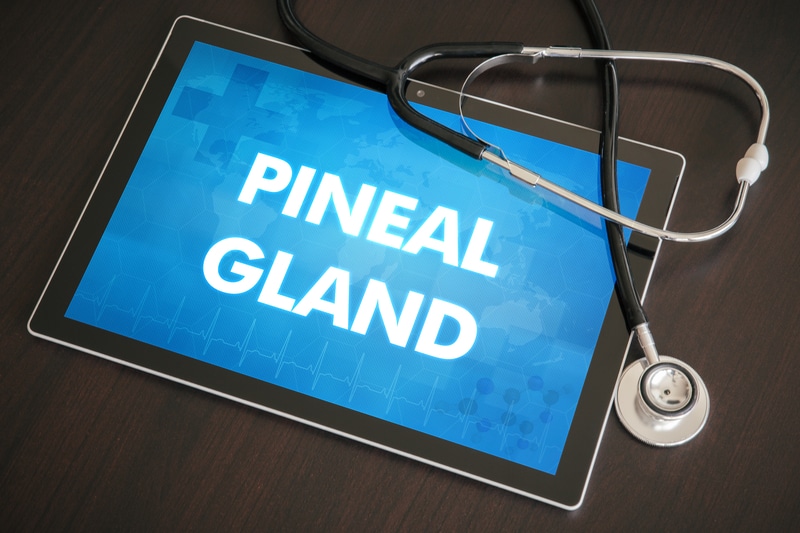
Rather than bog you down with a super-technical explanation, I’ll share what Phil Micans told me:
The pineal gland is the size of a pea and sites directly in the center of the brain.
One of its primary jobs is to produce melatonin in response to darkness, which in turn controls your circadian rhythms and informs your body when it is daytime and nighttime.
It’s why when you are in the cinema at 2pm in the afternoon and the lights go out, you start to feel drowsy 30 minutes into the movie.
But you have to think of the pineal gland as the “conductor” of the endocrine system: Without a conductor, an orchestra will only produce noise instead of music.
We know that hormones such as growth hormone and cortisol release first thing in the morning as your impetus to get up and start the day.
Hence the importance of the pineal gland as a controlling gland over the other endocrine glands… since the other glands help or hinder hormone secretion depending on the time of the day, you want your pineal gland finely tuned.
However, this transitions into the importance of melatonin and why Pinealon is a must-have bioregulator:
Most people are unaware of two things about melatonin:
(1) Contrary to popular opinion, the release of melatonin doesn’t make you fall asleep. Rather, it makes you drowsy, but that alone gives you deeper sleep by putting your body in a state of restorative REM sleep.
(2) Melatonin is the most powerful antioxidant your body endogenously produces, and some studies suggest extremely high doses of melatonin could inhibit tumor growth (remember when Doris Loh recommended melatonin during the pandemic?)
<NOTE> In my recent private Webinar with Doris Loh, she made recommendations of up to 2-3 grams of high dose melatonin (HDM) to ward off COVID and various viral pathogens. Rumor has it, using Pinealon in combination with high dose Melatonin provides an ‘out of body’ astral travel experience in ‘some users’.
Therefore, by taking Pinealon, we allow the pineal gland to endogenously produce more melatonin and bring forth all of the downstream health effects.
Which sounds awfully similar to the Melanotan 1 peptide I frequently use to enhance consciousness via pineal gland stimulation.
There are NO COINCIDENCES in the Golden Age of fully optimized health!
Pinealon Benefits
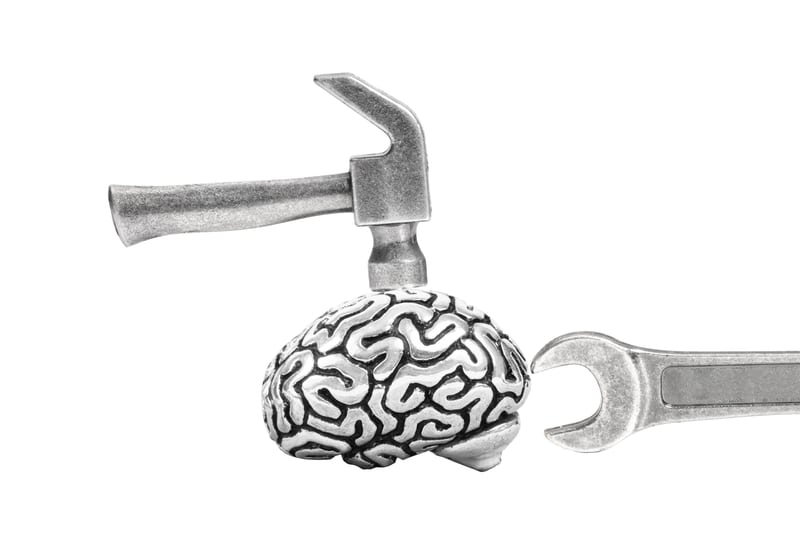
If you try to look up “Pinealon” on PubMed, you’ll get a disappointing total of 20 results… and there are only a few more papers you can find if you get smart with your search queries.
Fear not, as there is enough data to show us how the Pinealon benefits to your health extend far beyond mere party tricks.
Reduced Jet Lag
This one doesn’t have any clinical evidence supporting it (yet), but Phil Micans was eager to present this to me without hesitation.
Given the literature’s support for melatonin use in treating jet lag if timed correctly and dosed appropriately, and what we’ve just learned about endogenous melatonin production, why not just use Pinealon?
Not so fast!
Bioregulators don’t work as rapidly as a standalone melatonin supplement would, so you have to be a bit smarter.
The typical protocol for fixing sleep is to take normal melatonin – NOT extended release or sublingual – between 9 and 11pm, that way you release melatonin at its natural night peak between 1 and 3am.
Now let’s apply it to an example.
Let’s say we’re traveling from the east coast of the United States to Germany, a roughly 8-hour time difference.
What you want to do for the 3 days leading up to your flight is take Pinealon daily between 9-11pm of the DESTINATION’S TIME ZONE.
This will help you take only 1-3 days to get fully adjusted to the new time zone when you arrive, versus 7+ days of feeling chronically tired and unable to get through the day.
Memory Improvement
In Chapter 5 of the book Peptides in the Epigenetic Control of Ageing, Khavinson and his colleagues talk about three clinical trials done on humans using Pinealon to correct brain damage, whether through external trauma or internal dysfunction.
I couldn’t find the PubMed references for these, so I’ll just paste them verbatim.
Clinical Trial #1:
“In a clinical trial involving 72 patients with cerebral asthenia after cranial trauma (ages 30-74 years), peroral Pinealon (EDR) at the dosage of 0.2 mg twice daily for 20-30 days was added to conventional therapy.
The control group was comprised of 37 patients suffering from similar disorders and treated in the conventional way.
The patients who received Pinealon reported improvements in their memory and emotional stability and decreases in the duration and intensity of headaches.
Regressed focal symptoms and an improvement in speech were observed in those of the patients who had motor or sensory aphasia.
In Pinealon-treated patients tested for the rate of information processing (proof-correction test), the number of errors decreased and the integral workability index increased.”
Clinical Trial #2:
“Pinealon in capsules (one capsule twice daily for two weeks) was given to 75 elderly human subjects to correct the psycho-emotional and functional conditions of the central nervous system.
Improvements of the short-term and long-term memory and decreases in the index of severity of pathological conditions were observed in patients.”
Clinical Trial #3:
“The combined peroral administration of Pinealon and Vesugen (KED) (One capsule twice daily for 30 days) to subjects aged 20 to 75 years who have been being influenced by adverse occupational conditions (150 street vehicle drivers) helped to improve their memory, attention, cognition, perception and motor responses and to decrease the symptoms of aging of the central nervous system.”
Improving Physical Strength
In Chapter 3 of the book The Peptide Bioregulator Revolution, I found an interesting study involving the use of Pinealon in combination with another peptide bioregulator for the immune system.
Sadly there isn’t any hard data available on this study, but if confirmed, it would be a good example of how Pinealon’s use wouldn’t be limited to just older individuals with some kind of clear medical problem:
“Pinealon, together with Crystagen, were given to athletes at a dose of 0.1 mg twice a day for two weeks.
Their performance improved, with better adaptation to exercise, better immunity and a reduced incidence of respiratory disease, increased antioxidant protection, and improved metabolism parameters.
There was a direct relationship with genes which improve metabolism in exercising muscles (such as the PPARA and PPARG genes) as well as improvement in immune activation markers such as CD71, CD25, HLA-DR and the levels of M, G, and E immunoglobulins.”
Pinealon Dosage
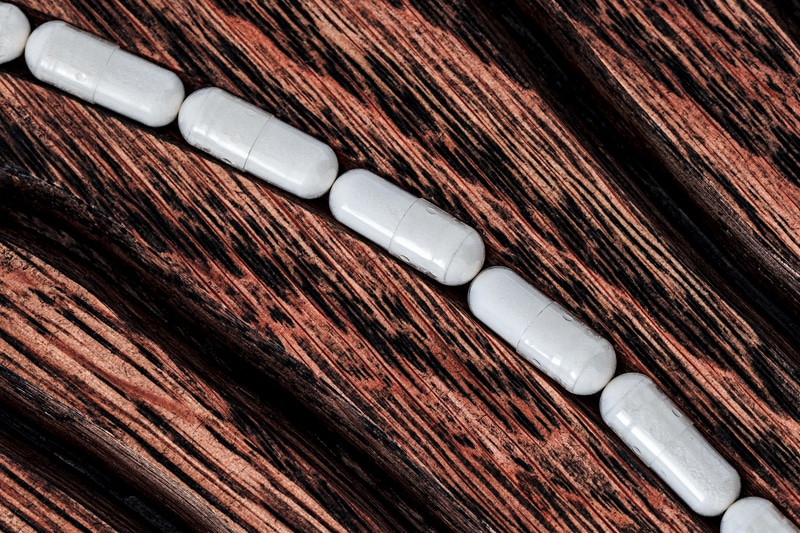
The Pinealon dose you should be taking regardless of your medical condition is the following:
1-2 capsules taken once or twice daily (30 minutes before meals) for a month, repeating the cycle every 4-6 months as needed.
If you’re going with Endoluten, the recommendations are slightly different:
- For normal use, 2 capsules a day for a month
- For treating stress and general debility, 1 capsule two to three times a day
- Cycle every 3-6 months depending on recovery
Phil Micans informed me that highly aware and sensitive people may see changes within the first 2-3 weeks, noticing better sleep (not necessarily more sleep).
However, and even with taking into account we are all N-of-1, the big changes you’ll experience with Pinealon need at least 3 months to take effect.
The general recommendations for Pinealon are the same as for Ventfort:
- Avoid use if pregnant or breastfeeding
- Store Pinealon in a cool, dark, dry place at room temperature away from direct sunlight
- Double-check the ingredients to see if you are allergic to anything
- Follow the dosing recommendations exactly.. LESS is MORE
What About Pinealon Injections?
If you browse the Internet for just a few seconds, you’ll see the majority of peptide vendors offering Pinealon in the form of a lyophilized peptide you have to reconstitute for subcutaneous injections.
So what should you take – the oral capsules or the injections?
Based on what we KNOW about peptide bioregulators’ amazing ability to work orally as they are tissue specific and Phil Micans’ first-hand experience, I would stick with the capsules.
Even though the injections would have greater bioavailability, the bioregulators are so small to the point where they will pass through the stomach wall and not be destroyed to any great degree.
There’s also a few problems with the injections at face value:
- Most people are needle phobic, and simply don’t want to have needles stuck in them
- Due to the route of administration, injections become a prescribed and ‘medically restricted’ medical treatment (versus the bioregulators’ status as food supplements)
- You don’t have to take the oral peptides every day
In the case of injectable bioregulators, you’ll only see them in limited cases with people who have real medical needs.
Something like an eye disorder would be treated with a daily injection in the orbital fat for 10 days straight, done every 6-12 months.
In the time periods between injections, the patient would be using the oral peptide bioregulators.
Long story short… you’ll be just fine with Pinealon in its original oral form!
Where To Buy Pinealon
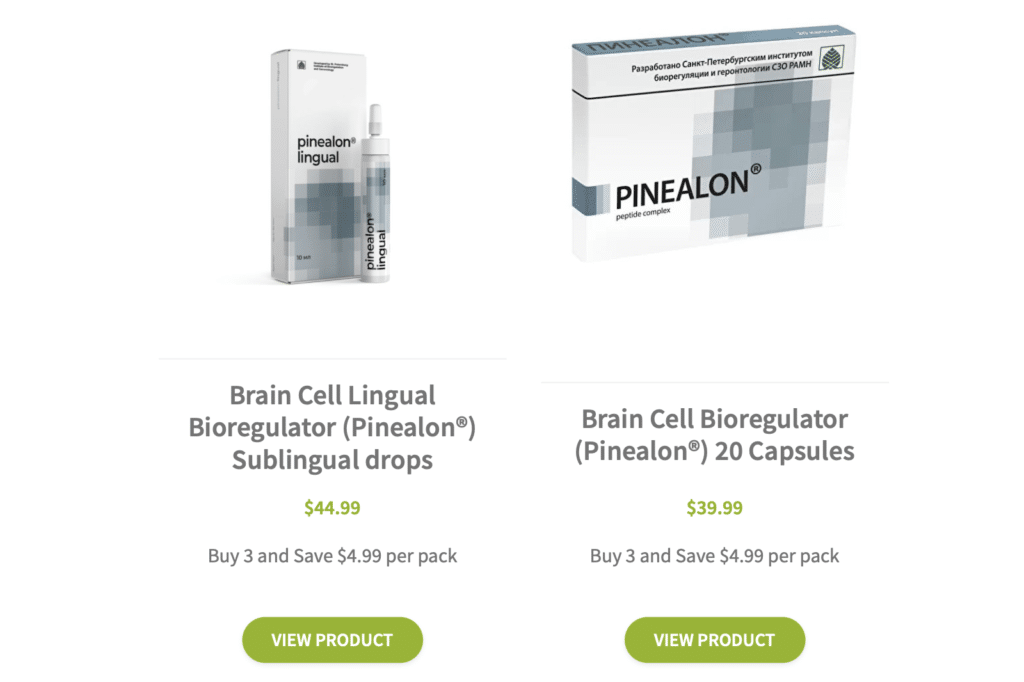
When it comes to legitimate peptide bioregulators sourced and synthesized properly, Profound Health (a subset of International Antiaging Systems) is the only place you need to know about.
They have Pinealon, Endoluten, and several other bioregulators I plan to write about in the very near future.
Use code JAY15 to get 15% off your order!
International shipping, +1000 articles on bioregulators, free magazine issues, a +30 year history… you’ll be hard-pressed to find any company with that kind of reputation and longevity in a world where peptides are being suppressed.
Conclusion: Control The Brain, Control Your Life
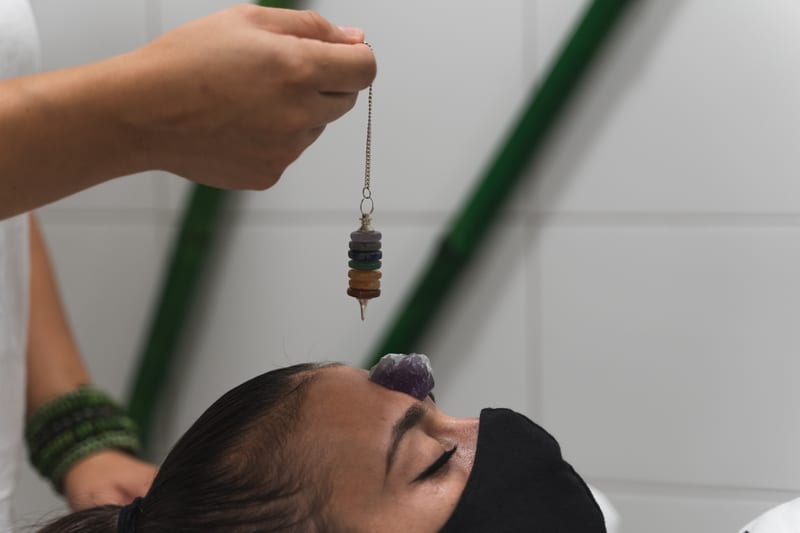
The Pinealon peptide bioregulator is a fascinating compound because of how it controls a tiny little gland that greatly influences many other systems in your body.
It’s interesting to see science finally catch up to what many of the ancient civilizations knew thousands of years ago, but now we have the tools to activate the brain and access higher levels of consciousness.
And if you KNOW me by now, what is more important than helping humanity reach a higher state of consciousness at the current moment?
At the very least, we can repair some forms of cognitive dysfunction and reach a point where we are no longer inhibited by low-vibration thinking and emotional drainages.
As always…
Raise Your Vibration To Optimize Your Love Creation!
PS – To be in the know and get a sneak preview of all the peptide bioregulators I’ll be talking about for the rest of 2023, join The Fully Optimized Health Private Membership Group.
It’s your greatest opportunity to fully optimize your health and gain total access to me and my network of high-level men and women living their highest and best life.

